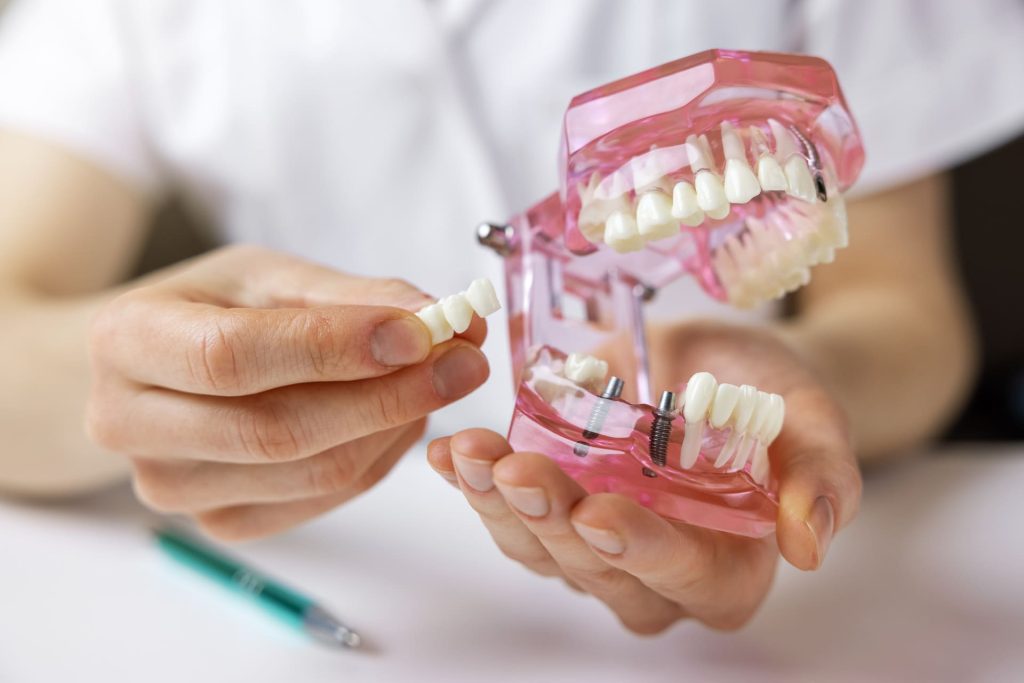
Dental implants are a highly regarded solution for those looking to replace missing teeth. While they offer numerous benefits, many prospective patients have concerns about the pain associated with the procedure. Worry not, we at London Dental House are here to address these concerns and provide valuable insights into what you can expect during and after the dental implant process.
What Are Dental Implants?
Dental implants consist of a titanium post that is surgically inserted into the jawbone, serving as a root for an artificial tooth. This treatment provides a stable foundation for replacement teeth and helps preserve jawbone health. Before getting started, your dentist will conduct a thorough evaluation to determine if you’re a suitable candidate for implants.
Pain During the Procedure
One of the most common concerns regarding dental implants is the potential for pain during the procedure. Fortunately, advancements in dental technology and anesthesia techniques have made this process much more comfortable.
During the surgery, local anesthesia is used to numb the area, meaning you should not feel any pain while the implant is being placed. Most patients report feeling pressure rather than pain. Additionally, for those who experience anxiety, your dentist may offer sedation options to help you feel more relaxed.
Post-Surgery Discomfort
After the surgery, it’s normal to experience some discomfort as your body begins to heal. Many patients describe this sensation as mild soreness at the implant site. This discomfort can usually be managed effectively with over-the-counter pain relievers such as ibuprofen or acetaminophen.
Swelling and bruising are also common but generally subside within a few days. Your dental team will provide specific aftercare instructions to help minimize discomfort and promote healing.
Factors Influencing Pain Levels
Several factors can determine the level of pain you might experience after dental implant surgery:
- Individual Pain Tolerance: Everyone’s pain tolerance varies, which can affect how you perceive discomfort during recovery.
- Complexity of the Procedure: If additional procedures, like bone grafting, are necessary, you may experience more discomfort than someone who undergoes a straightforward implant placement.
- Oral Health Conditions: Pre-existing dental issues can impact healing and pain levels. A comprehensive evaluation by your dentist will help you understand your unique situation.
Managing Post-Operative Pain
To help manage pain and discomfort after your dental implant surgery, consider these helpful tips:
- Follow Post-Operative Instructions: Adhering to your dentist’s aftercare guidelines is crucial for a smooth recovery.
- Use Cold Compresses: Applying ice packs to the affected area can help reduce swelling and numb the area.
- Stick to Soft Foods: Eating soft foods can prevent irritation to the surgical site and aid in recovery.
The Long-Term Perspective
Most patients find that the discomfort associated with dental implants is temporary and manageable. Once the healing process is complete, many report significant improvements in their quality of life, including enhanced confidence and functionality.
While concerns about pain during and after dental implant surgery are common, most patients find the experience to be much more comfortable than they anticipated. With the right preparation and support from your dentist, you can navigate this process with confidence. If you are considering dental implants in London, Ontario, don’t hesitate to reach out to our team at London Dental House. We’re dedicated to making your dental experience as pleasant and pain-free as possible.
